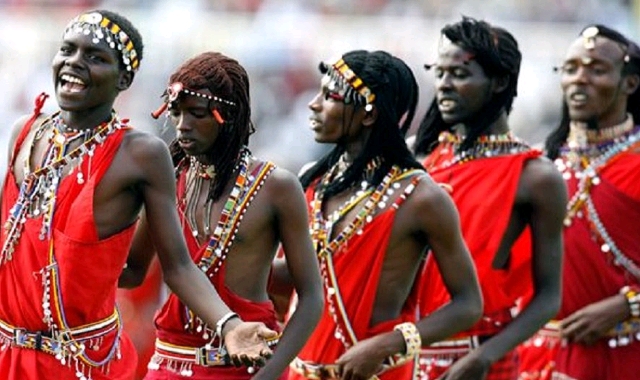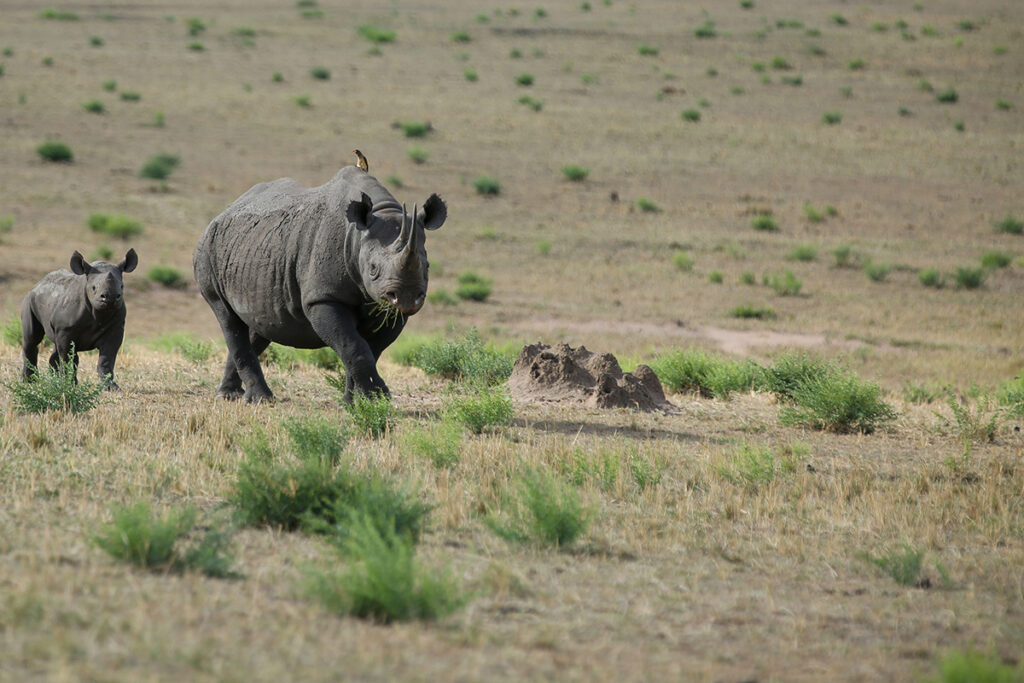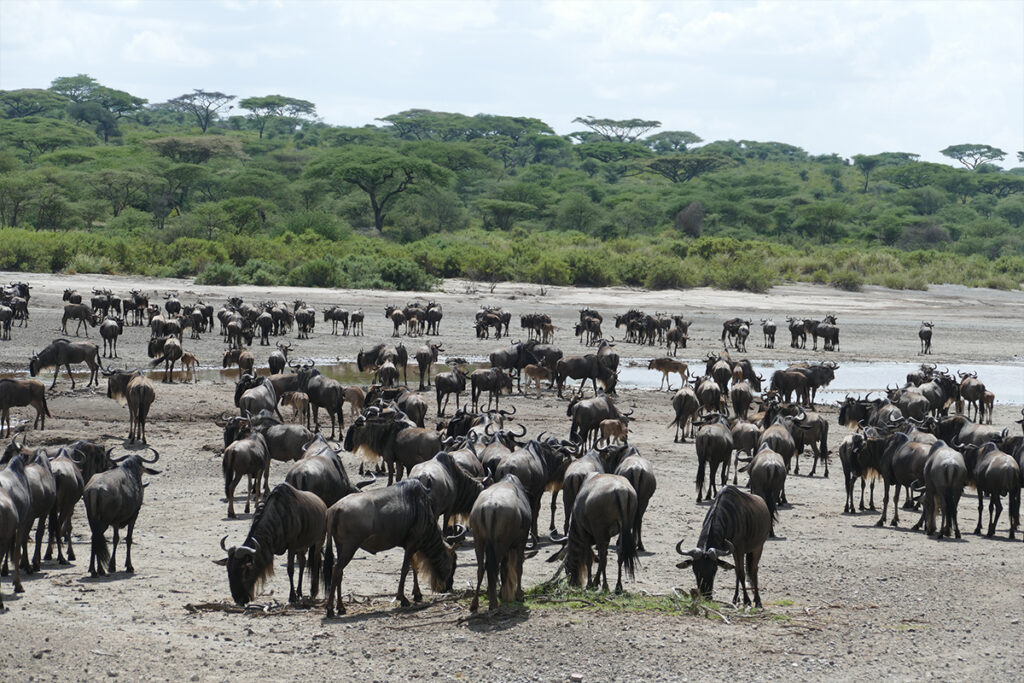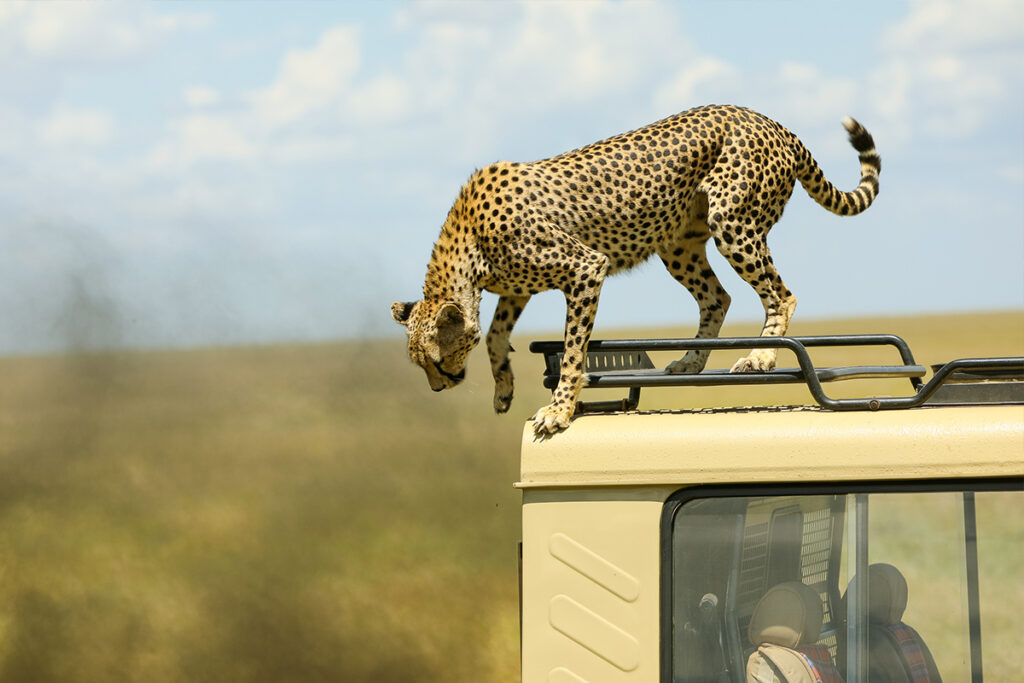Hidden in the lush foothills of Mount Kilimanjaro lies a treasure trove of culture, the Chagga tribe. With traditions as rich as the fertile volcanic soil they farm, the Chagga people have preserved a way of life that dates back centuries. Their unique irrigation systems, crafted from bamboo, are just one testament to their ingenuity and deep connection to their environment.
Historically, the Chagga tribe emerged as one of Tanzania’s most influential ethnic groups due to their advanced agricultural techniques. They are known for cultivating bananas and coffee, contributing significantly to Tanzania’s economy. Today, the Chagga tribe remains a vibrant community, blending ancient customs with modern progress, ensuring their cultural heritage endures for generations.

Chagga Tribe: The Rich Cultural Heritage of Tanzania
The Chagga tribe, nestled on the slopes of Mount Kilimanjaro, is renowned for its rich cultural heritage. They’ve thrived in this fertile region for centuries, developing advanced agricultural techniques unique to their community. The tribe’s traditions include crafting garments from local bark cloth and partaking in age-old rituals. Socially, the Chagga people have strong family bonds and communal values. Together, these customs create a vibrant tapestry, celebrated in various festivals.
Agriculture is the backbone of the Chagga economy. The tribe is famous for using ingenious irrigation systems to nurture crops like bananas and coffee. Coffee cultivation is especially significant, and it provides a significant economic boost to the region. By combining traditional methods with modern practices, they’ve managed to sustain their livelihoods. This balance of old and new keeps the Chagga society resilient.
Language and folklore play essential roles in sharing the Chagga culture. The Kichagga language is spoken among family members, and storytelling is a cherished pastime. Folktales often teach valuable lessons and reflect the tribe’s values. In recent years, there’s been a push to document these stories to preserve them for future generations. This effort ensures the Chagga’s diverse heritage remains alive and accessible.
The Chagga experience an intriguing blend of ancient and modern life. They embrace modern amenities while preserving their unique identity. According to the article here is the post, they continue to engage in traditional activities like crafting and music-making. Festivals are a time for community gatherings and cultural performances. This harmonious blend of past and present is key to the Chagga tribe’s enduring legacy.
Tanzania| Culture of the Chaga Tribe \u0026 Mount Kilimanjaro
Deep Dive into the Chagga Tribe’s History
The history of the Chagga tribe is rich and steeped in tradition and resilience. They settled on the slopes of Mount Kilimanjaro centuries ago, drawn by the fertile land. Over time, they developed sophisticated farming methods that set them apart in the region. Their art of irrigation became a defining trait, enabling them to thrive where others struggled. This mastery over their environment is a cornerstone of Chagga history.
As traders and farmers, the Chagga developed extensive networks and connections. They traded goods like coffee and bananas with nearby communities, strengthening their economic standing. This not only helped the Chagga tribe prosper but also built alliances with neighboring tribes. These relationships were crucial, especially during times of conflict. By forming strategic partnerships, they ensured their survival and growth.
An element of their history that fascinates many is their social organization. The Chagga were traditionally organized in clans, each with its own specific roles and responsibilities. Decisions were often made collectively, respecting the wisdom of elders. Such communal living fostered tight-knit bonds among tribe members. It was essential for maintaining harmony and order within the growing community.
The Chagga’s past isn’t just about survival; it’s about cultural evolution too. They have managed to keep their traditions alive while adapting to modern influences. Oral history, passed down through generations, keeps their stories vibrant and relevant. Ongoing efforts to document their past further preserve their legacy. The Chagga tribe’s history is a testament to their adaptability and enduring spirit.
Unearthing the Chagga Tribe’s Unique Cultural Practices
The Chagga tribe’s cultural practices are as diverse and vibrant as the landscape they inhabit. From traditional dances to ritual ceremonies, each practice tells a story of the past. Music plays a central role, with drums and chants resonating through gatherings. These musical expressions are not only for entertainment but are deeply embedded in their religious and social lives. Dance, often performed at festivals, showcases the community’s spirit and unity.
Bark cloth making is another remarkable tradition among the Chagga. This ancient practice involves crafting garments from the bark of specific trees. The process requires skill and patience, as each piece is handcrafted. These garments are often used during special ceremonies, showcasing their cultural significance. Bark cloth embodies the Chagga’s connection to their environment and artistic heritage.
The Chagga also have a unique way of organizing societal roles. Elder councils guide the tribe in making important decisions, reflecting the value placed on experience. Women have pivotal roles in both household and community affairs. Their involvement ensures the continuation of traditions and cultural education for younger generations. This dynamic gives strength and balance to Chagga society.
Cultural expression is not limited to clothing or social structure. The Chagga cuisine, rich with local flavors, offers a glimpse into their way of life. Meals often include bananas, beans, and goat meat, cooked using time-honored methods. Food brings people together, serving as an essential element in social gatherings. These practices reveal the Chagga tribe’s unique identity and enduring legacy.
The Impact of Chagga Tribe on Tanzania’s Economy
The Chagga tribe significantly contributes to Tanzania’s economy through agriculture, especially coffee production. Situated on the fertile slopes of Mount Kilimanjaro, they’ve perfected the art of coffee cultivation. Coffee not only provides income to many Chagga families but also boosts Tanzania’s exports. The beans, prized for their quality, are sought after in international markets, bringing foreign exchange into the country. This international trade establishes the Chagga as key players in the agricultural sector.
In addition to coffee, the Chagga also grow bananas which serve multiple purposes in their economy. Bananas are a staple food but are also used to make local brew, an important cultural beverage. This brew is not just consumed locally; it becomes a commodity traded between tribes and villages. Such trade supports local markets and fosters economic interaction with neighboring communities. These activities underscore the importance of both crop diversification and traditional practices.
Tourism is another area where the Chagga influence Tanzania’s economy. Visitors come from all over the world to experience Chagga culture and participate in guided tours of their villages. Tourists are introduced to traditional dances, music, and of course, the coffee-making process. This form of cultural tourism generates revenue and provides employment opportunities for local people. It’s an essential part of the Chagga’s economic framework.
The Chagga tribe demonstrates a remarkable blend of tradition and modernity which influences their business ventures. Many young Chagga entrepreneurs are combining traditional knowledge with modern techniques to enhance productivity. They receive training in agricultural best practices and sustainable methods to improve output. This modernization not only elevates their earnings but also contributes positively to Tanzania’s economic development. This forward-thinking approach ensures sustainable growth for the community.
The cooperative movement within the Chagga tribe further enhances their economic impact. By forming cooperatives, Chagga farmers can pool resources and share knowledge. This collaboration helps them negotiate better prices and access larger markets. Communities benefit through improved infrastructure and shared wealth. These cooperatives exemplify how unity and strategic planning can drive economic success.
Staying Vibrant: The Blend of Ancient and Modern in Chagga Society
The Chagga tribe offers a fascinating example of how ancient traditions can coexist with modern influences. While they maintain age-old practices such as storytelling and traditional dance, new technologies have slowly become a part of their daily lives. Mobile phones and the internet are now common, helping them stay connected and access information. This blend of old and new doesn’t dilute their heritage; instead, it enriches their daily experiences. The Chagga show that progress can harmoniously coexist with cultural preservation.
Education is a significant area where the Chagga blend tradition and modernity. Schools in Chagga regions teach both traditional knowledge and contemporary subjects. Children learn about their tribe’s history alongside science and technology. This dual focus prepares them to participate effectively in a globalized world while staying rooted in their cultural identity. It’s an approach that respects the past while embracing the future.
Healthcare practices in Chagga society rely on both traditional and modern methods. Herbal medicine, passed down through generations, plays a vital role in treating ailments. However, modern medical facilities are also accessible and acknowledged as necessary. The choice to use either traditional or modern medicine depends on personal preference and the nature of the illness. This flexibility is an asset to the community’s well-being.
Cultural events often showcase this unique balance, blending ancient rituals with modern entertainment. Festivals might involve traditional drumming and dance, followed by contemporary music performances. These events draw younger generations to learn about their culture in dynamic ways. Encouraging participation in such activities helps keep traditions alive while engaging with newer forms of expression. It’s an approach that ensures that the vibrancy of Chagga culture never fades.
Preserving the Heritage: How the Chagga Tribe Keeps their Culture Alive
The Chagga tribe actively works to preserve their heritage through various cultural practices and community efforts. Elders play an essential role in passing down knowledge through storytelling sessions and oral traditions. These stories teach younger generations about their history and values. Regularly held cultural festivals also celebrate Chagga traditions, keeping them vibrant and relevant. This continuous engagement ensures that their customs are not forgotten.
Language preservation is another critical aspect of maintaining Chagga culture. The Kichagga language is taught to children at an early age, both at home and in schools. Bilingual education systems help children become proficient in both Kichagga and Swahili. Language not only connects them to their ancestors but also strengthens their communal identity. Efforts to document and teach the language are vital for its survival.
Traditional crafts and skills are key components of Chagga heritage. Artisans meticulously handcraft items such as baskets, pottery, and bark cloth. These crafts are often sold in local markets, promoting cultural pride and economic support. Skills are passed down within families, ensuring that each generation learns these important techniques. This hands-on approach helps safeguard their artisanal heritage.
Modern technology also plays a role in cultural preservation. Digital tools are used to record traditional songs, dances, and ceremonies. These recordings can be archived and shared widely, making Chagga culture accessible to a global audience. Social media platforms help the community to showcase their traditions and connect with Chagga people worldwide. This blend of tradition and technology ensures their culture remains dynamic and adaptable.

Frequently Asked Questions
The Chagga tribe is renowned for its vibrant cultural heritage, deeply rooted in tradition and adaptation. Discover how this tribe’s unique practices contribute to their enduring legacy and impact on Tanzania’s cultural and economic landscape.
1. What makes Chagga coffee cultivation unique?
Chagga coffee cultivation is notable for its use of an ingenious irrigation system. This system, crafted from locally available materials, allows them to farm efficiently on the slopes of Mount Kilimanjaro. The unique growing conditions and careful attention to their coffee plants result in beans that are highly sought after globally for their rich flavor. This expertise in agriculture plays a significant role in boosting Tanzania’s coffee exports.
Additionally, the Chagga’s approach integrates traditional knowledge with modern techniques. Farmers receive training to improve yield while maintaining sustainable practices. This balance ensures long-term productivity and supports the livelihoods of numerous families involved in coffee farming. As a result, Chagga coffee continues to thrive in local and international markets.
2. How has the Chagga tribe preserved their language?
The Chagga tribe has taken a proactive approach to preserve the Kichagga language. It is passed down through generations within families and taught in schools alongside more widely spoken languages like Swahili. Efforts to document the language in written and digital formats enhance its longevity and accessibility for future generations.
This dedication to language preservation instills a strong sense of identity and community among the Chagga people. By maintaining bilingual education systems, they ensure that children grow up being proficient in both traditional and modern languages. The integration of Kichagga into daily life reinforces its vitality within the community.
3. What role does music play in Chagga culture?
Music is a fundamental part of Chagga culture, used in both social and religious contexts. Traditional instruments, such as drums and flutes, accompany dances that mark various ceremonies and festivities. Songs often convey historical narratives and serve as a medium for teaching cultural values, connecting past and present.
In recent years, there has been a movement to record and archive traditional Chagga music. This effort not only preserves the musical heritage but also shares it with a broader audience. For the Chagga people, music remains a living tradition that continues to inspire and unite their community.
4. How does tourism impact the Chagga tribe?
Tourism significantly impacts the Chagga tribe by providing economic opportunities and cultural exchange. Tourists are drawn to the region for its rich traditions, including village tours and cultural performances. This influx of visitors creates jobs and promotes local crafts and traditions, contributing to economic growth.
Moreover, tourism fosters a greater appreciation of Chagga culture and supports efforts to preserve it. By engaging with tourists, the Chagga people share their stories and practices with a global audience. This interaction not only sustains their traditions but also enriches the cultural experiences of visitors.
5. What are some traditional Chagga crafts?
Traditional Chagga crafts, such as pottery and basket weaving, are integral to their cultural heritage. These crafts use materials sourced from the natural environment and are passed down through generations. Such craftsmanship not only serves practical purposes but also holds cultural significance in ceremonies and daily life.
Artisans often sell their crafts at local markets, where they remain popular among both locals and tourists. The production of these items provides economic support for families while preserving traditional skills. By continuing these practices, the Chagga keep their artisan legacy vibrant and relevant in the modern world.
🔴#TSC: Did you know about the Chiefs of Chagga Tribe?
Conclusion
The Chagga tribe stands as a vibrant testament to the resilience and adaptability of cultural heritage. By intricately weaving traditional practices with modern influences, they preserve their identity while contributing to Tanzania’s economy and society. Their commitment to language, music, and crafts highlights a deep respect for their past.
Moreover, the Chagga’s strategic embrace of tourism and education ensures that their rich culture remains influential and accessible. As they continue to navigate a rapidly changing world, the Chagga tribe exemplifies how deeply rooted traditions can thrive alongside inevitable progress. This harmonious blend offers valuable insights for other communities seeking to preserve their heritage in modern times.



